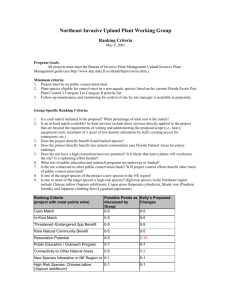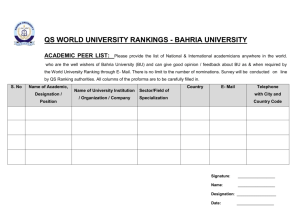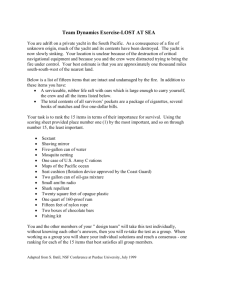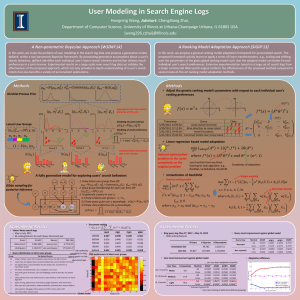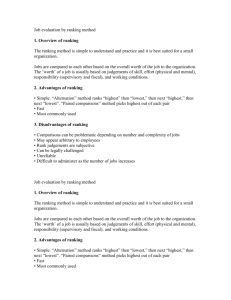Abstract - Krest Technology
advertisement
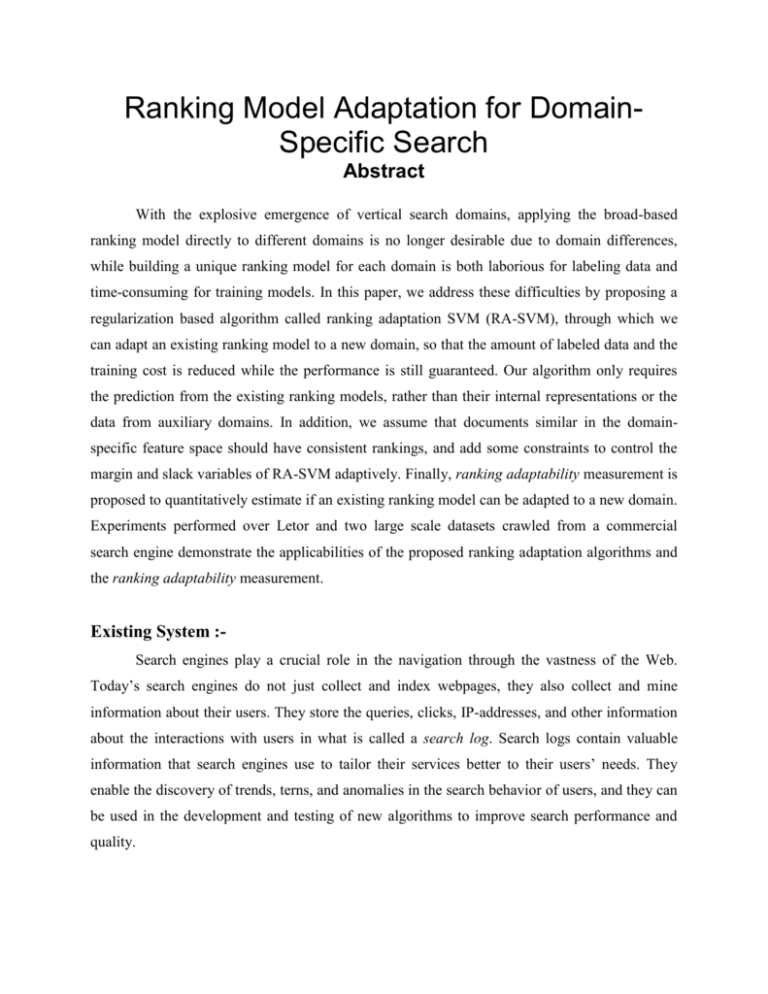
Ranking Model Adaptation for DomainSpecific Search Abstract With the explosive emergence of vertical search domains, applying the broad-based ranking model directly to different domains is no longer desirable due to domain differences, while building a unique ranking model for each domain is both laborious for labeling data and time-consuming for training models. In this paper, we address these difficulties by proposing a regularization based algorithm called ranking adaptation SVM (RA-SVM), through which we can adapt an existing ranking model to a new domain, so that the amount of labeled data and the training cost is reduced while the performance is still guaranteed. Our algorithm only requires the prediction from the existing ranking models, rather than their internal representations or the data from auxiliary domains. In addition, we assume that documents similar in the domainspecific feature space should have consistent rankings, and add some constraints to control the margin and slack variables of RA-SVM adaptively. Finally, ranking adaptability measurement is proposed to quantitatively estimate if an existing ranking model can be adapted to a new domain. Experiments performed over Letor and two large scale datasets crawled from a commercial search engine demonstrate the applicabilities of the proposed ranking adaptation algorithms and the ranking adaptability measurement. Existing System :Search engines play a crucial role in the navigation through the vastness of the Web. Today’s search engines do not just collect and index webpages, they also collect and mine information about their users. They store the queries, clicks, IP-addresses, and other information about the interactions with users in what is called a search log. Search logs contain valuable information that search engines use to tailor their services better to their users’ needs. They enable the discovery of trends, terns, and anomalies in the search behavior of users, and they can be used in the development and testing of new algorithms to improve search performance and quality. Proposed system:we analyze algorithms for publishing frequent keywords, queries and clicks of a search log. We first show how methods that achieve variants of k-anonymity are vulnerable to active attacks. We then demonstrate that the stronger guarantee ensured by differential privacy unfortunately does not provide any utility for this problem.We then propose a novel algorithm ZEALOUS and show how to set its parameters to achieve probabilistic privacy. We also contrast our analysis of ZEALOUS with an analysis by Korolova et al. that achieves indistinguishability. Our paper concludes with a large experimental study using real applications where we compare ZEALOUS and previous work that achieves k-anonymity in search log publishing. Our results show that ZEALOUS yields comparable utility to k−anonymity while at the same time achieving much stronger privacy guarantees. Modules 1. User module 2. Admin module 3. Product details 4. Graph generation HARDWARE & SOFTWARE REQUIREMENTS: HARDWARE REQUIREMENTS: System : Pentium IV 2.4 GHz. Hard Disk : 40 GB. Floppy Drive: 1.44 Mb. Monitor : 15 VGA Color. Mouse : Logitech. Ram : 512 MB. SOFTWARE REQUIREMENTS: Operating system : Windows XP Professional. Coding Language : Java Frame work : Struts Back end : oracle 10g


